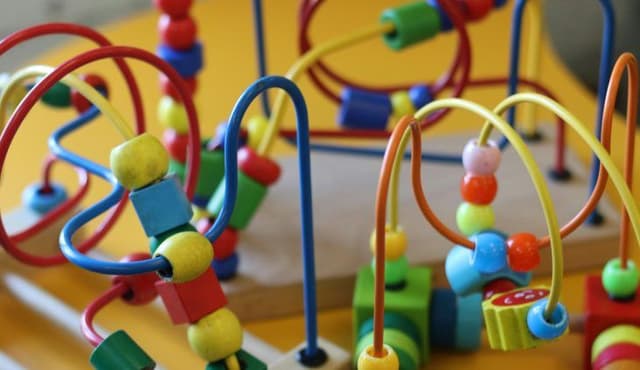Policy
English government supports families with £126 million funding injection

Freya Lucas
Jan 14, 2025
Save
Thousands of parents and children across England will be able to give their child the best start in life thanks to a £126 million (approx. AU$250 million) government funding boost, which aims to deliver on the promise of a Plan for Change.
To achieve the government’s overall mission of closing the opportunity gap, the government has set a milestone as part of the Plan for Change of a record proportion of children starting school ready to learn.Progress will be measured through 75 per cent of 5 year olds reaching a good level of development in the early years foundation stage assessment by 2028.
The funding will be allocated to areas with high levels of deprivation to provide a range of support to parents, including on mental health and infant feeding, parenting classes, and aligned services and offerings.
Around £57 million (approx. AU$112 million) will be made available to 75 local authorities with high levels of deprivation in 2025 to 2026. This will provide a raft of support through Start for Life services to families with babies, from pregnancy up to the age of 2 years. The £57 million for Start for Life services will be given to local authorities and consists of:
- £36.5 million to improve mental health support for families and promote positive early relationships between babies and caregivers
- £18.5 million to improve infant feeding services and provide support with breastfeeding
- £2 million to ensure families can access and understand their local Start for Life services and support parents and carers to bring their valuable insight into service design
The newly announced support comes on top of the £69 million announced in the Government’s budget for a network of family hubs, which aim to serve as a one-stop shop for families to get help with infant feeding advice, parenting classes and perinatal mental health support, among other areas.
By delivering accessible, integrated maternity, baby and family support services, and high-quality early education and childcare, the government aims to advance its mission of breaking down barriers to opportunity and setting every child up for the best start in life.
Antenatal classes, health visitors, parenting support, baby and toddler groups and access to affordable, high-quality early education and childcare are vital to guiding parents and supporting child development, however over 80 per cent of parents have said they struggled to access services.
The lack of support in early years can act as a barrier to development and contributes to too many children not being ready to start school, with over a third of children unable to dress independently and 90 per cent of first year of school teachers saying they have at least one child in the class who is not toilet trained.
As such, and through the Government’s Plan for Change, there is a commitment to strengthening and joining up family services to improve support through pregnancy and early childhood and improve long-term outcomes for children - including through today’s investment in the Family Hubs and Start for Life programme.
The Family Hubs and Start for Life programme is jointly run by the Department of Health and Social Care and the Department for Education. There are over 400 family hubs in England, covering half of all upper-tier councils. The hubs offer a range of services tailored to the local community, including midwifery and health visiting.
The Department for Education also funds parenting and home learning environment programmes. These services support parents to form strong bonds with their babies and develop better home environments which boost children’s social, emotional and cognitive development.
Staff at family hubs can connect families to a range of health and education services. This includes helping families access information and advice around debt and welfare, housing, domestic abuse, nutrition and oral health. They have a universal offer while targeting disadvantaged families or those who would benefit most.
People can get support from a family hub if they are:
- an expectant parent or carer
- a parent or carer of a child aged 0 to 19 - or 25 with special educational needs or a disability
- a young person up to the age of 19, or up to 25 with special educational needs or a disability
“This crucial investment provides a strong foundation to deliver our commitment to raise the healthiest generation of children ever, by giving parents the support they need to ensure their baby has the best start in life,” Andrew Gwynne, Minister for Public Health and Prevention, said.
“The first 2 years of a child’s life lay the building blocks for their physical and emotional wellbeing into adulthood. That’s why we are investing in early years, as part of our Plan for Change, to improve access to services in deprived areas to ensure no one is left behind.”
Minister for Children and Families, Janet Daby, agreed, saying “through our Plan for Change, we’ll ensure tens of thousands more children are hitting key early learning goals on personal, social and physical development as well as communication, literacy and maths. That’s because children growing up in our country deserve the best start in life - nothing less.”
Estimates indicate £45.5 billion could be generated for the national economy by investing in early childhood. The 75 local authorities receiving Family Hubs and Start for Life programme funding are as follows, categorised by region:
- East of England: Bedford; Luton; Norfolk; Peterborough; Thurrock
- London: Barking and Dagenham; Brent; Camden; Croydon; Enfield; Greenwich; Hackney; Haringey; Hounsow; Islington; Lambeth; Lewisham; Newham; Southwark; Tower Hamlets; Waltham Forest
- South East: East Sussex; Isle of Wight; Kent; Medway; Portsmouth; Southampton
- North East: County Durham; Gateshead; Hartlepool; Middlesborough; Newcastle upon Tyne; Northumberland; Redcar and Cleveland; South Tyneside; Sunderland
- North West: Blackburn with Darwen; Blackpool; Bolton; Halton; Knowsley; Liverpool; Manchester; Oldham; Rochdale; Salford; St Helens; Tameside
- Yorkshire and The Humber: Barnsley; Bradford; Calderdale; Doncaster; Kingston upon Hull, City of; North East Lincolnshire; North Lincolnshire; Rotherham; Sheffield; Wakefield
- East Midlands: Derby; Leicester; Lincolnshire; North Northamptonshire; Nottingham
- West Midlands: Birmingham; Coventry; Dudley; Sandwell; Stoke-on-Trent; Telford and Wrekin; Walsall; Wolverhampton
- South West: Bristol, City of; Cornwall; Plymouth; Torbay
Don’t miss a thing
Related Articles



















